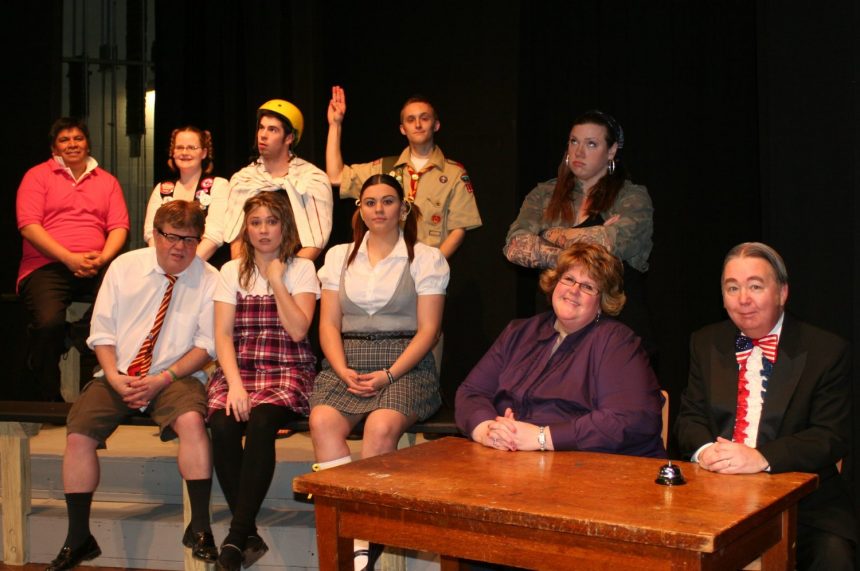There’s an old saying that behind every good man, there’s a good woman. In terms of the real world—where there’s less sexism, more theatre—that means that behind every good theatre person is a community theatre. It doesn’t have to be a good community theatre, just someplace to do theatre on a non-professional level for a while. Maybe it’s the first place you get to be on stage or maybe it’s the place you retreated to after the professional theatre world burned you. The point is that when I say ‘your community theatre’ you know exactly what I mean.
I was lucky enough to work with the same community theatre for all of my awkward middle phase, the years when you figure out who you are and what you’re going to be. I turned into a theatre geek who wants to write plays for a living, so you can see how much of an effect that had on me.
To the community theatre that shaped me: Thank you. Thank you for taking me when I was little and had no idea of who I was and being with me as I figured it out. You gave me a place to be the person I didn’t even know I was yet. Thank you for connecting me with people who would become some of my best friends, for introducing me to my college roommate. Thank you for allowing me to incorporate theatre into my normal routine. These are the things I loved about you.
Of course, there were the nights when rehearsal would run late by several hours. There was the disheartening attendance at the shows and the quality of the shows themselves—which weren’t always bad but often not good. There was the fact that I often had to do jobs I didn’t sign up for or know how to do. And then there were the politics—the stupid, community theatre politics about directing and casting choices and power struggles. These are the things I loathed about you.
But at the end of the day, you did what you were supposed to do. You did theatre, no matter what the cost. Sure, the shows were sometimes bad but the people were always, always good. They were people who had theatre in their bones, who might pretend to be a doctor but lived their true life as a lights technician at night.
Which is why community theatre isn’t just important, it’s necessary. Because it’s theatre happening against the odds. It’s theatre closest to the bone as people work against schedules and families and jobs and on no budget. Moss Hart said that the art of survival was the only thing necessary to have a career in the theatre. That’s something that isn’t taught at theatre schools, but that the talented people who work in community theatre intrinsically know.
I’ve worked on much better shows and with more professional people since I stopped working with you, but when the shows fail and those people can’t fix them, it’s you, not them, that keeps me going. It’s that first taste of theatre, the one that you gave me, that prevents my pallet from souring. You taught me to keep going. That theatre needs to happen no matter how it happens. When I want to stop, I think of you and all the things you did for me—and I feel lucky to have come of age in a theatre.
Written by Caleigh Derreberry
Originally Published at On Stage Blog
27 February 2018


